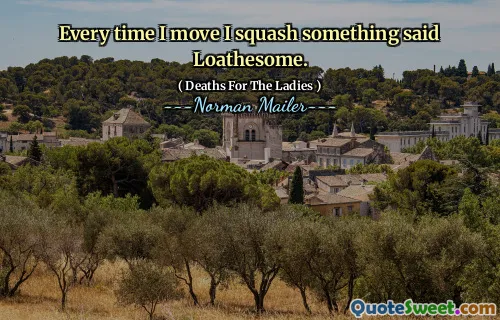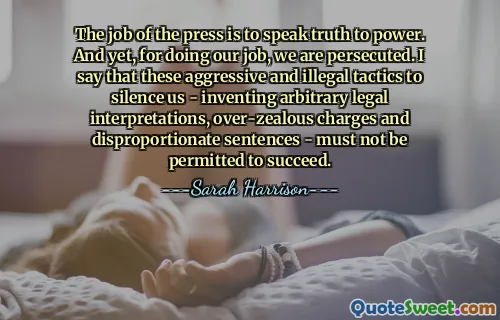Let everywritertell hisownliesThat's freedomof thepress.
The quote from Norman Mailer's book "Deaths For The Ladies," which states, "Let every writer tell his own lies; that’s freedom of the press," underscores the importance of individual expression in journalism and literature. It suggests that the essence of press freedom lies in the ability of writers to convey their own perspectives, even if they embellish or distort the truth. This notion celebrates creative liberty while highlighting the subjective nature of truth in writing. Mailer’s perspective invites discussions about the responsibilities tied to this freedom. While writers have the right to express themselves, they also face ethical considerations regarding authenticity and the impact of their narratives on society. This duality reflects the broader debate on the role of media in shaping public perception and the fine line between storytelling and factual reporting.
The quote from Norman Mailer's book "Deaths For The Ladies," which states, "Let every writer tell his own lies; that’s freedom of the press," underscores the importance of individual expression in journalism and literature. It suggests that the essence of press freedom lies in the ability of writers to convey their own perspectives, even if they embellish or distort the truth. This notion celebrates creative liberty while highlighting the subjective nature of truth in writing.
Mailer’s perspective invites discussions about the responsibilities tied to this freedom. While writers have the right to express themselves, they also face ethical considerations regarding authenticity and the impact of their narratives on society. This duality reflects the broader debate on the role of media in shaping public perception and the fine line between storytelling and factual reporting.

